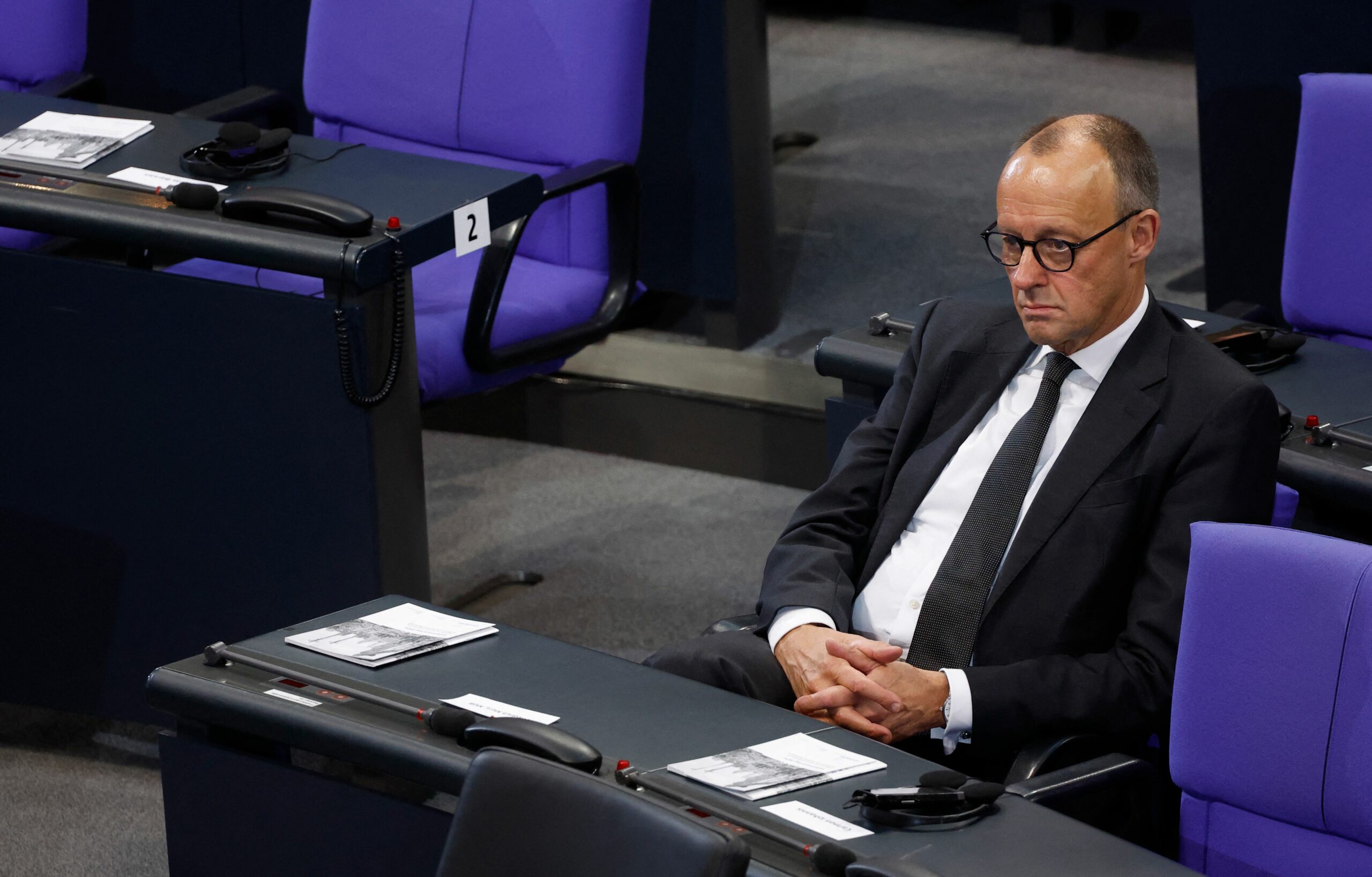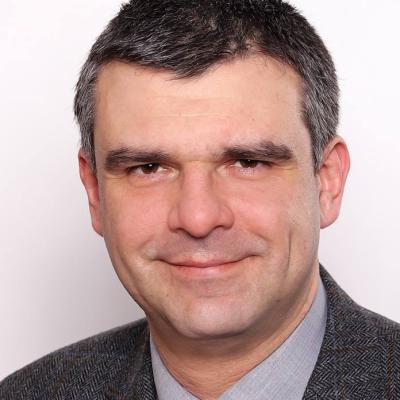At the beginning of November, one of the most atypical coalitions in German history came to an end. For three years, the Social Democrats, the Greens and the liberals of the FDP had been trying to get along in one government. But Chancellor Olaf Scholz sacked his main rival for the ruling majority, FDP finance minister Christian Lindner. The resignation of almost all other liberal ministers paved the way for early general elections to be held on 23 February 2025. All of this gives Friedrich Merz, the leader of the Christian Democratic Union (CDU), currently Germany’s most popular political force, the chance to become chancellor as early as next spring. In what follows, we analyze why the coalition collapsed, explore the possible course of events and suggest what we can expect from Merz.
No more coalition
The end of 2021 saw the formation of not only the most original coalition in the history of the Federal Republic of Germany, but also perhaps the most controversial. Parties with different ideologies had never before formed a majority in parliament. Suffice it to recall that three out of four of Angela Merkel’s governments have included conservatives and social democrats — total ideological antipodes. But the alliance of the country’s two largest parties, known in Germany as the ‘Volksparteien‘, allowed them to balance each other out and iron out their differences.
In this case, the coalition agreement was signed by representatives of three parties with different views on the development of the state. The parties were aware of the potential dangers of the new alliance. This was the first time such an alliance had been formed at the federal level, but it had already been practiced at the state and local level and was considered unstable (for example, the tripartite coalition in the Bonn city council lasted only eight months). As the newly appointed Foreign Minister Annalena Baerbock noted in December 2021, the coalition agreement was drawn up «on the basis of reality, on the basis of social realities». It was assumed that the three forces could reach a compromise in the name of a common goal: economic growth and the fight against the consequences of the Covid-19 pandemic.
At the time, however, the members of the coalition could not have known that in the third month of their coexistence as a German government, Vladimir Putin would decide to launch a full-scale invasion of Ukraine. A major war in Europe could not fail to affect the coalition’s activities. Germany was forced to spend huge resources on diversifying energy supplies, stabilizing the national economy, supporting Ukraine and helping Ukrainian refugees. The coalition’s performance cannot be judged as a clear failure. Many decisions were undoubtedly timely and correct, from the change in naturalization rules to welfare reform. As early as 2024, Scholz was proud to report that more than 80 per cent of the promises in the coalition agreement had been fulfilled, and by the end of the year this figure will reach 90 per cent, as not all proposals require a simple majority in parliament. At the same time, new challenges have created an urgent need to reallocate the budget. And that’s what put the final nail in the coffin of the coalition.
The most controversial issue was whether the «debt brake» (a regulatory mechanism that allows the government to borrow only up to a certain level and to repay it quickly also known as Germany’s balanced budget amendment) should be followed exactly or whether it could be weakened. The Liberals were not prepared to deviate one iota from the prescribed framework, stressing that it was a legislative norm. The Social Democrats and the Greens, on the other hand, believed that in view of the national and European crisis, it was possible to deviate from the rules in the name of investment in priority projects — in exceptional cases the law allows it. The coalition partners were also divided on the question of prioritization. In the end, under Lindner’s leadership, the finance ministry followed the path of austerity. Individual budget items were constantly the subject of lengthy negotiations in mediation commissions. In the end, the budget was adopted late and entire sectors of the state were forced to operate under conditions of temporary financing.
At the end of October, Lindner effectively gave the coalition an ultimatum: either the government adopts his economic plan, or the Liberals reserve the right to leave the parliamentary majority. This was not the first time the FDP had made such threats. Wolfgang Kubicki, deputy speaker of the Bundestag and the party’s second-in-command, has spoken of the possibility of a coalition break-up at least five times this year alone. The political circumstances present Scholz with a difficult choice: to continue the coalition at all costs, in the name of the country’s stability in the face of external and internal threats, or to sack the finance minister, which would almost automatically open the way to early general elections, but would make it possible to form a capable government in the near future that could become an agent of that very stability. From a purely partisan point of view, the first option made it more likely that the SPD would remain the governing party, while the second option made the Social Democrats’ chances of success rather slim, given their low ratings. The Chancellor chose the second option. After a series of resignations and the transformation of the parliamentary majority into a minority, Scholz will put the question of confidence to the Bundestag in December. He is expected to lose the vote and new elections will be held in February. By and large, the cabinet chief did what most citizens expected of him: according to a poll published the day before the coalition collapsed, more than half of Germans called for a new election, while only 14 per cent were satisfied with the government’ performance.
Who are you, Mr Merz?
The Christian Democrats (CDU-CSU) are currently leading the polls. Their rating fluctuates between 32 and 34 per cent, well ahead of their closest rivals, the far-right Alternative for Germany (AfD, 16−18 per cent) and the SPD (15−16 per cent). The leader of the CDU and official candidate for chancellor, Friedrich Merz, has long been ranked as Germany’s second most popular politician (the incumbent Defense Minister, Social Democrat Boris Pistorius, is in first place but has not yet declared his chancellorship ambitions). Of course, the German electoral process is full of surprises. Just look at the last election in 2021, when the CDU led for almost the entire campaign, but the SPD managed to pull ahead in the final stages of the race and won. However, given the unusually short campaign, Scholz’s low personal ratings and the significant number of grievances that some voters have accumulated against the previous coalition, it is unlikely that the Social Democrats will be able to turn the tide, and it is highly likely that the Conservatives will come first and have the right to form a new government.
Friedrich Merz has at least two things in common with Donald Trump. First, both have combined politics and business, which is more or less tolerated in the US but almost impossible in Germany. One quickly loses count when trying to name all the boards of German and multinational companies on which the CDU leader, an entrepreneur, lawyer and professional lobbyist, has served. Secondly, Merz is similar to Trump in his desire to return to big politics at any cost, despite the many obstacles and successes in business that would allow him to forget forever the intrigues in the corridors of power. With a parliamentary mandate dating back to the 1990s, Merz became chairman of the CDU-CSU parliamentary group in the Bundestag in 2000, the third most important post in the party. By this time, he was already engaged in a protracted conflict with the then conservative leader and future chancellor Angela Merkel. The ideological and personal confrontation ended with Merz’s removal from office and his temporary retirement from politics. Not being a direct participant in political processes, he tried not to leave the information space, commenting in the media on all the major events of the «Merkel era», from the global financial crisis and aid to the countries of southern Europe to the «open door» policy towards refugees from Syria and the annexation of Crimea by Russia. In 2018, when it became clear that Merkel would not run for a fifth term, Merz decided to jump back into big politics.
His ‘Blitzkrieg’ did not quite work out. Merz understood that there was a demand in the party for a more conservative course and a return of the Christian Democrats to their traditional center-right platform. But for this to happen, Merkel’s proxies had to be defeated first. Merz’s first attempt failed. He lost the CDU leadership election to Annegret Kramp-Karrenbauer, whom the chancellor wanted to succeed her. Merz failed to take into account the strength of Merkel’s influence and the fact that the third candidate was the influential Jens Spahn, who represented the conservative wing but in a softer form. Spahn only came third, but took some of the «right-wing camp» votes away from Merz. Merz’s rematch took place in 2021−2022. He again entered the Bundestag and became party leader with a fantastic 94% of the vote. In a short time, the new leader purged the party landscape of Merkel’s legacy, moved the country’s largest party «to the right» and became its leader with no rivals to speak of.
The views of Mertz and Scholz are strikingly different. This is particularly evident in economic and social issues. For example, the Conservative is extremely skeptical, for example, about the liberalization of German citizenship, the new unemployment benefit model, migration policy, climate protection measures or preferential rail tickets — in other words, many of the initiatives of the current government that have been implemented over the past three years. This does not mean that upon entering the Chancellery, Merz will in one fell swoop repeal the laws passed by the Traffic Light coalition majority. Rather, they will be the subject of political negotiations with future coalition partners, without whom the conservatives will not be able to form a new majority. This is likely to be the SPD or the Greens, meaning that Merz will have to make certain concessions on social and environmental issues. Merz is also actively playing the «patriotic card», calling for a «return of pride in one’s country». He has to play on this field, trying to «capture» the votes of the right-wing electorate, which in recent years has partly switched to the AfD and partly started to ignore the elections, not wanting to support either the extreme right or the CDU, which has moved to the left under Merkel.
One of the main intrigues will be the foreign policy course of the hypothetical Chancellor Merz. Many observers believe that the conservative leader will find it easier to reach an agreement with Trump on a whole range of contentious economic issues, from the expected high US tariffs on products imported from the EU, which will hurt the German economy, to the supply of liquefied natural gas from the US. For Trump, any Democratic politician from Germany will be «too left-wing», but perhaps it is the former business lobbyist Merz who will be able to reach an agreement with the new inhabitant in the White House. At the same time, the CDU candidate shows much more determination in supporting Ukraine than the current head of cabinet. At the beginning of the year, the conservatives twice voted in the Bundestag to supply Kyiv with Taurus missiles. During a debate in March, Johann Wadephul, vice-chairman of the CDU/CSU parliamentary group and a Merz confidant, issued an ultimatum: «We either win with Ukraine or lose with Ukraine! There is no third way. The Christian Democrats lost the Taurus vote, but gained the image of uncompromising supporters of increased military aid to Ukraine.
Recently, Merz has made several harsh statements about Russia and its aggression against Ukraine. Criticizing Scholz for «exaggerated fears», the politician suggested giving Putin an ultimatum: if the bombing of civilians did not stop within 24 hours, the West should lift all restrictions on the use of weapons supplied to Ukraine, and Kyiv could count on receiving Taurus «in a week». Merz called for «everything possible to be done to support Ukraine, except our entry into the war». Merz did not hold back on the pro-Russian forces in German politics either, calling representatives of the AFfD and Sahra Wagenknecht’s Bloc «useful idiots acting in the interest of Russia and China».
There is no doubt that the potential Chancellor Merz will try to introduce fundamental changes in German foreign policy. But we must not forget that the loud demands made in the capacity of opposition leader and election candidate can be very different from the actual steps taken as chancellor. Scholz, too, announced a turning point in history from the rostrum of the Bundestag in February 2022, but his subsequent actions have been much more hesitant. If he wins the election, Merz will have to reckon with the opinion of other members of the future coalition, and the junior coalition partner in Germany traditionally receives two important portfolios that directly influence foreign policy initiatives: foreign minister and chair of the parliamentary defense committee. Moreover, Germany and the Europeans as a whole cannot ignore the US position and will have to engage in dialogue with Trump. It is therefore possible that the resolute Chancellor Merz will be replaced by the modest, compromising «Chancellor Scholz».










